In this blog, we explore how HeX Productions have supported educational institutions in removing digital barriers and how these methods can assist in providing equal access to learning.

Schools and higher educational establishments aren’t the same as they used to be, nowadays, it’s all digital. From watching enticing videos in class, to filling in homework through e-learning environments, or searching and applying for a course in the first place, is all online.
Unfortunately, there is a plethora of barriers in education, which take a variety of forms. This is sometimes due to a lack of funding to get the right technology in place for students. However, more often, it is because of a lack of understanding about what is needed to be inclusive. This results in many young people missing out on their education and being left behind.
Sadly, people with disabilities are the ones most impacted by poor digital accessibility. Disabled people face difficulties due to the hardware or software they are using being incompatible with assistive technologies. Alternatively, it can be because of a lack of available accessibility features on websites and documents. It can even come down to the basics of how content is presented, such as a lack of captions on videos or providing learning resources which aren’t structured in an inclusive way.
Education is a fundamental human right and everyone should have an equal opportunity to learn. The good news is there are many ways to remove digital barriers, so, it’s time for organisations to start prioritising digital accessibility.
How performing website accessibility audit testing can seek out online barriers
HeX is no stranger when it comes to performing robust accessibility audits. Our experience has led us to working with some of the world’s top pioneering institutions.
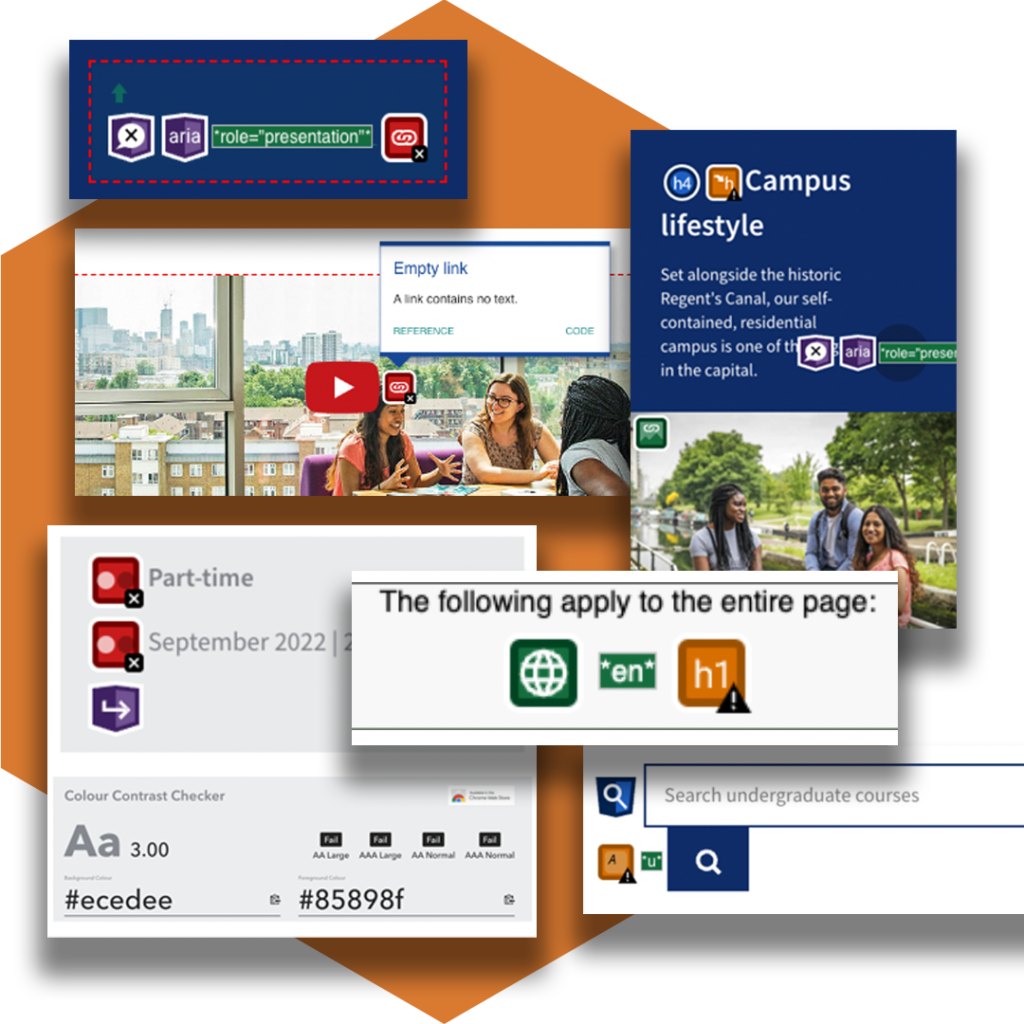
This includes the likes of:
- Queen Mary University of London (QMUL)
- University of Nottingham
- University of Winchester
- Bishop Grosseteste University
Without building a website from scratch, there’s no better way of ensuring internal and external platforms are accessible. Our audit process uses automated and manual user testing, with assistive technology, and developers perform technical reviews of coding. This has allowed our experts to seek out educational barriers that have been preventing students from having an equal learning experience.
Audit testing has helped to enable our clients in education to have a clear roadmap of required changes. This has resulted in them having:
- An enhanced learning experience for all users.
- A heightened reputation.
- A streamlined website user-journey.
- More students visiting both their website, leading to attaining a higher intake.
- An accessibility statement created to assist website visitors.
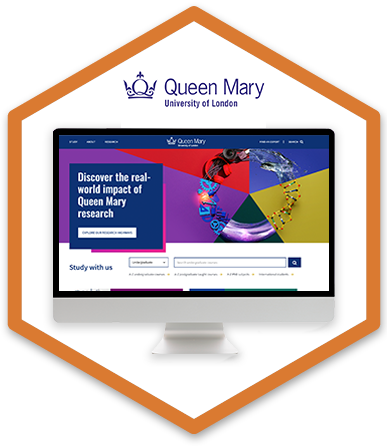
QMUL audit accessibility errors
Read our case study to learn what key errors our accessibility audit testing discovered for Queen Mary University of London. In turn, helping them to become accessible for all students.
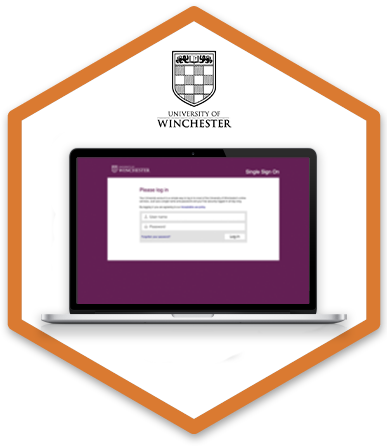
Audit testing of an intranet
Read how we assisted the University of Winchester to ensure their new intranet was compliant with Web Content Accessibility Guidelines and how their accessibility statement helped their users.
Create accessible educational platforms through inclusive web design and development
Websites in education are jam packed with an array of course information and enticing media to draw students towards applying for a place. Which, if it isn’t built correctly, can be quite an overwhelming experience and sometimes impossible for many to navigate. So, the way that sites are designed and structured is key and accessibility needs to be at the forefront. This is the morally right thing to do and public sector websites are also legally required to do so.
To lead your students on a simplistic journey through your website, should begin in the initial design phase. Such as what we’ve achieved for QMUL Alumni. We mapped out a clear user flow for the university, building comprehensive sitemaps. This guided students through the platform due to strong taxonomy, user-friendly navigation, and striking call-to-action blocks. This presented inspiring and engaging ways for former students to remain involved with the university.
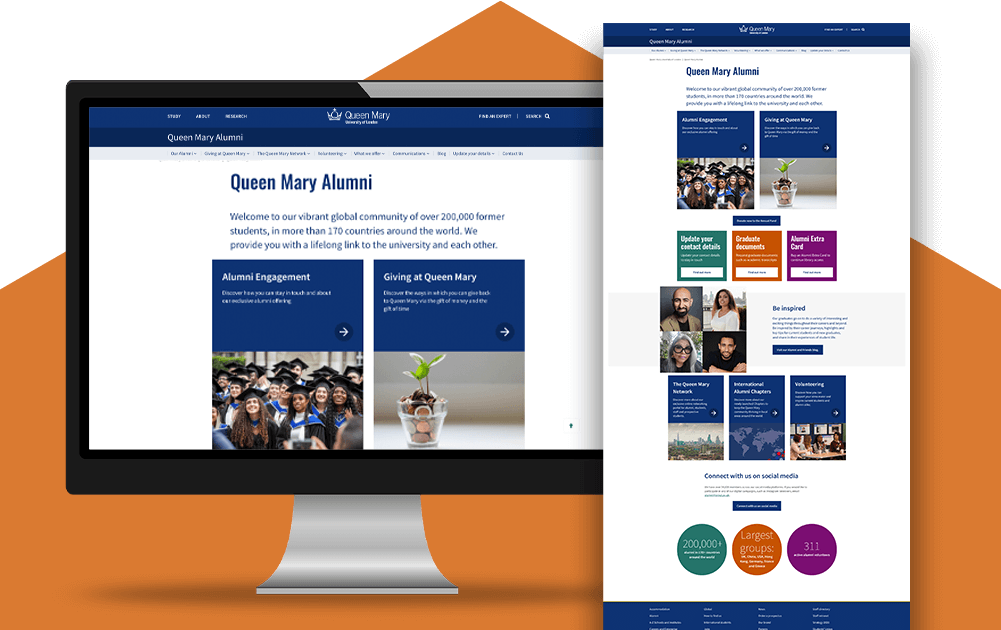
For Homefield College, to aid with their accessibility, we also implemented easy read options and bespoke content filters on their new platform. This helped students with learning difficulties to better understand their study programmes. These features gave users the ability to read news items through a choice of text, audio, or to view content via a video.
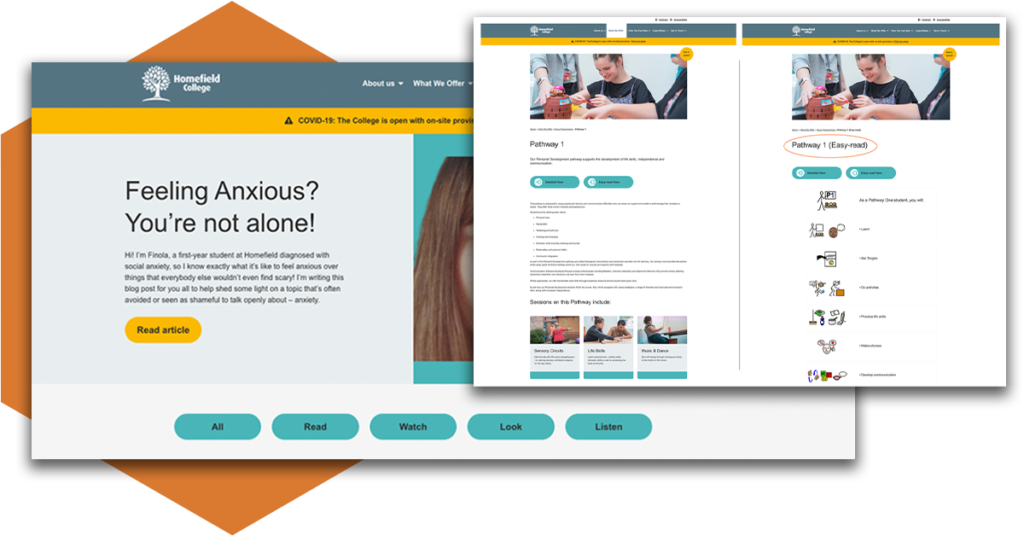
All of which was built to meet Web Content Accessibility Guidelines (WCAG) Level 2.2 AA standards. This means that all students, no matter what device or software they may use, will get equal access to online content and have a user-friendly experience whilst doing so.
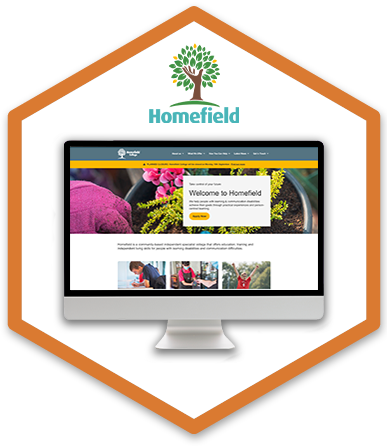
Bespoke API integration
Learn how bespoke integrated APIs have helped Homefield College to increase the college’s donations and assisted students in pinpointing multiple college locations in one map.
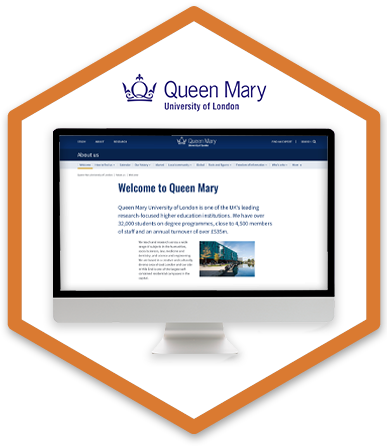
Accessible digital prospectus creation
Read how we used cookies and scripts for a unique digital prospectus solution for QMUL. This helped students to browse courses via a Funnelback course search.
Upskilling training and consultancy to raise accessibility awareness
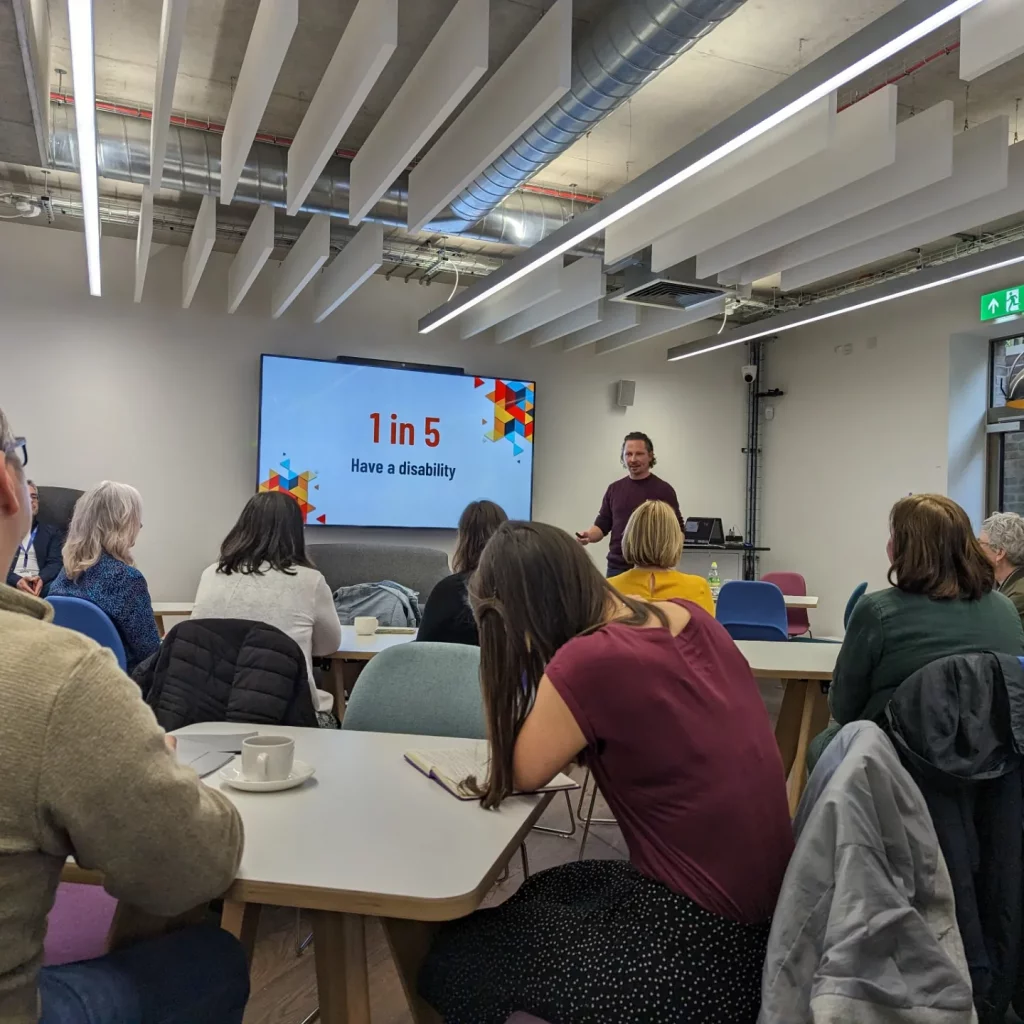
Our team are passionate accessibility advocates. Therefore, we want to share our knowledge to help shape an inclusive online world. We do this in the hope that there will be no accessibility obstacles for our future generations to come.
This is why with every web development project, we always provide content editor accessibility training as a standard. This ensures that the upkeep of digital platforms are continued to be maintained in an accessible way.
Beyond this, we provide a whole host of online and in-person training. These courses can help:
- Teachers to learn how to create and deliver accessible resources.
- In-house web developer teams on best accessibility practices and how to find errors.
- Senior Leadership Teams gain a deeper understanding about the need for accessibility.
- Staff in communications, marketing, and administrative roles on creating accessible documents, social media content, and inclusive design work.
Our accessibility consultancy can help in-house teams to develop their skillset. A prime example of this is our support for Nottingham College. Here we provided a six-month contract, working closely with the college’s web developer. This in-depth training taught him how to seek out and eradicate accessibility errors; creating an inclusive platform now, and staying compliant in the future.
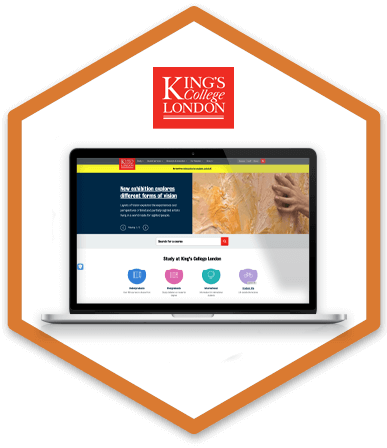
Empowering accessibility training
Our accessible content training empowered King’s College London’s communications team. The team tailored their resources to become inclusive and our awareness training gave a deeper understanding on the barriers that students face.
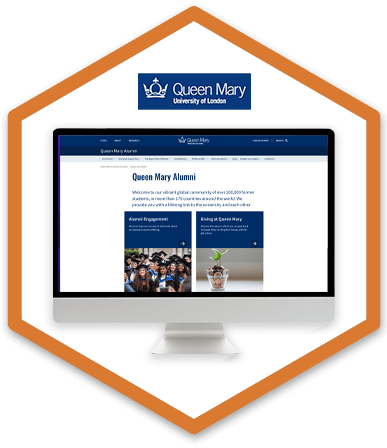
Upskilling CMS training
Learn how our close working relationship with Terminalfour and QMUL allowed us to provide training to familiarise more than 350 teams, faculty, and content editors with their new Contact Management System (CMS).
How empathy lab experiences can help both students and staff
Interactive empathy lab experiences can help to give students and staff a new perspective. This is achieved by providing the opportunity to see first-hand how someone with a disability interacts with a digital platform.
Take a look at our empathy lab in action with students from Confetti Institute of Creative Technologies. Through the use of virtual reality, students gained a different outlook on digital accessibility. This session enabled Content Creation students to start embracing designing with accessibility in mind for future project work.
HeX can help your school or higher education institution to become inclusive for all
Our experts have a wealth of experience in both WordPress and are Critical Partners to Terminalfour. We can offer an end-to-end solution for all of your digital accessibility needs, from design and development, through to website audit testing and training.
We also offer a range of maintenance support contracts to ensure you stay accessible. Learn more about our ticketing system and how we have supported Queen Mary University of London and all of the 200 microsites associated with the university.
